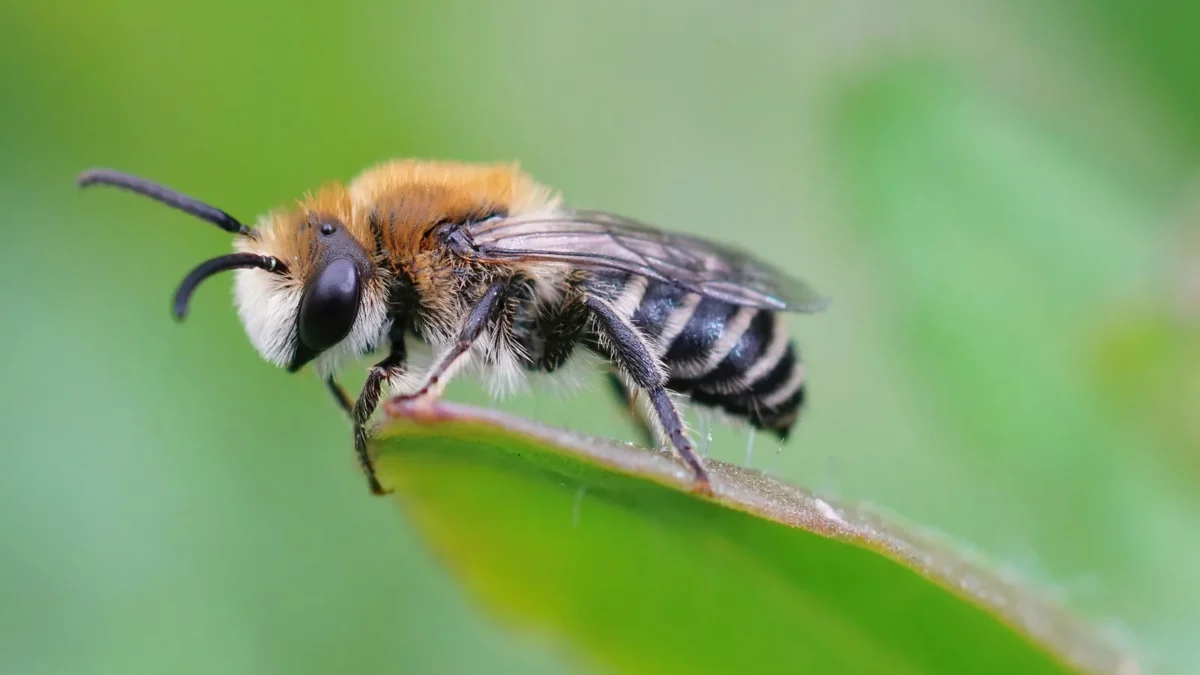According to the United Nations Environment Programme, of the 100 crop varieties that provide 90% of the world’s food, 71 are pollinated by bees!
Bees are my world’s biggest miracle workers, I must admit.

Photo credit: Britannica
According to the Food and Agriculture Organisation,
Safeguarding bees safeguards biodiversity: the vast majority of pollinators are wild, including over 20 000 species of bees.
I mean, the price tag of global crops directly relying on pollinators is estimated to be between US$235 and US$577 billion a year, according to the Food and Agriculture Organisation!

Photo credit: The Guardian
Do we even ever speak of the honey they give us?
We are talking about the kind of honey that will have licking away a whole tin without any fear of clogging your throat with so much sweetness (hihi)!
The kind of honey we use as an antibacterial and antioxidant…

Photo credit: Modern Farmer via Shutterstock
Honey can be mixed into different drinks, for example tea, milk, yoghurt or natural juices.
It can be added to various baked or cooked dishes (cakes, sauces, vegetables, meats), usually to infuse them with its special aroma.
Honey can fully replace consumer sugar in our diet!

Photo credit: Veg News
So, my question is,
What are you doing to protect bees from complete damage and extinction?
What are you doing to ensure we still get the honey we are enjoying in our bread?
What are you doing to tenderly hold for our next meal?



I so wish my township allowed for us to have bees. It is something I would enjoy learning to do – and hope I could contribute to helping their population.
😍👏🏿
I once saw on TV that the reason our brains developed into how we have them now is because honey gave us the energy to develop them from primitive man! (I googled it and found this relevant link: https://www.smithsonianmag.com/science-nature/humans-the-honey-hunters-9760262/) I think it’s so important that we all do our part to help bees. We can do this by planting bee-friendly flowers in our gardens, avoiding pesticides, and supporting sustainable farming practices. Bees are essential to our planet, and we need to do everything we can to protect them.
👏🏿👏🏿👏🏿👏🏿👏🏿
Bees are so important. My 4-year-old daughter is frightened of bees, and I found a book for her at the library about bees. It had a page saying if it weren’t for bees, there would be no strawberries and she’s going around telling everyone! She’s not as afraid of bees now!
😂😍😍
Bees are important to the ecosystem. People don’t seem to realize just how valuable they are and how their numbers have diminished over the years. We need to do what we can to restore bee populations.
😍👏🏿
Bees really do a lot for us and the environment. They are such important members of our life. The honey they do their hardest to make is wonderful too and has many benefits.
😍👏🏿
Bees are so special and their lives are truly fascinating. It is truly amazing that they produce substance that’s so beneficial to humans, antibacterial and antifungal. We should be doing more to protect bees for sure.
😍👏🏿
It is disheartening to see bee populations continue to decline year after year. This has become the norm, and it is a sad reality that certain species of bees are disappearing.
😩😩
Bees do a lot fos us so we also should do things for them. To protect them.
😍👏🏿
This is interesting to read about bees. Honestly, I don’t know a lot about them. I learned something from this post.
👍👏🏿
This is heart melting, if I could have a chance I will make a bee garden or plant a tree for them.
😍👏🏿
Yes, it’s important to acknowledge and appreciate the honey that bees provide for us. It’s not just a sweet treat, but also has antibacterial and antioxidant properties that can benefit our health. However, it’s also important to remember that bees are not just honey producers, but also play a crucial role in pollination and maintaining our ecosystem. That’s why it’s important to support efforts to protect and preserve bee populations. This is definitely something to think about
😍👏🏿
Beautifully written article! You ask what will we do…but I will turn the question around and ask “what should we do?” to help save the bees.
😍👏🏿 good question girl! I’ll make a blog on that. Thank you for the observation.
These helpful critters are responsible for pollinating all sorts of fruits, vegetables, nuts, spices, animal feed, coffee and even chocolate! We need toprotect them.
😍👏🏿
As annoying and dangerous bees can be, they are crucial to our survival, including mine. Bees are a necessity for a good portion of my overall diet, from wheat for bread, to honey for my tea, smoothies, even face masks. Thank-you so much for raising awareness on the importance of bees. I couldn’t imagine my life without them.
😍👏🏿
I don’t now a ton about bees other than they smell fear. LOL !
😂😂😂 nnnoooooo girl, they’re more than that!
We really love our bees and try to take care of them the best that we can.
😍👏🏿
I do love bees. I have noticed the only time you get stung is when you don’t want them to. Bees are just so cool
😍😍👏🏿👏🏿
Simply heart-melting post elaborating the importance of bee and pollinated foods made by them. It would be a great step to create a bee garden and plant trees to get pollinated food.
🙏🏽👍
Bees and other pollinators are so important for our planet. We try to make our yard pollinator friendly.
🙏🏽👍
I had no idea soooo much of our food was pollenated by bees! Talk about busy bee! So thankful for these little creatures!
🙏🏽😍
Bees are busy little miracle workers! We depend on them for so much, I hope we can care for them too so they don’t risk extinction.
👍🙏🏽